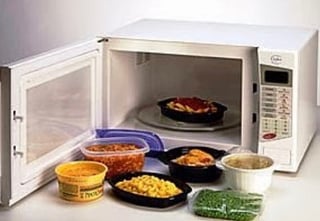 Is it true that microwaving food removes nutritional value?
Is it true that microwaving food removes nutritional value?
The truth is that if you do it right, cooking food in the microwave is one of the best ways to retain your food's vitamins and minerals. It depends exactly what you are comparing microwaved foods to, but in general, it’s actually better to heat food in the microwave versus steaming, boiling or baking it.
In fact, it's near the top of the list for nutritionally sound food-preparation methods. If you use your microwave with a small amount of water to essentially steam food from the inside, you'll retain more vitamins and minerals than with almost any other cooking method.
Much of this has to do with the fact that microwaves heat foods so quickly. Vitamin C, a nutrient that is frequently lost in cooking, has been found to be well-preserved when microwaving. In general, cooking methods that best retain nutrients are those that cook quickly – heating the food in the shortest amount of time and using as little liquid as possible.
Why should you use so little liquid? Because when you plop foods in water and then crank up the heat, their nutrients can leach out into the water – which goes right down the drain.
The nutritional effects of microwave cooking on protein, lipid and minerals seem to be minimal. For microwave reheating of foods, nutrients like thiamin, riboflavin pyridoxine, folacin and ascorbic acid are retained.
In conclusion, using your microwave to cook food, if it's covered tightly in a microwave-safe container with a minimal amount of liquid, is a nutritional win.
Related Article: The Many Health Benefits of Fish Oil
Related Article: Will Cutting Out Sugar Help You Lose Weight
